Seminar: Cultural Consumption as a Driver of Migrant Integration (COCUMINT)
Cultural Consumption as a driver of Migrant Integration (CUCOMINT).
The seminar aims at understanding the drivers of the consumption of cultural goods by migrants and if they play a role in the assimilation process in the destination countries.
After the first four weeks of lectures the students are expected to produce an individual or in-group survey paper supervised by the chair holder and will present their results in a discussion section which will enhance their ability to develop coherent arguments in the course of their presentations. The final research product will be part of the seminar evaluation.
The seminar aims to enable students to understand the need for an interdisciplinary knowledge of the integration of migrants. It also aims at teaching students how to do research and how to define the specific topic of research in the consumption of cultural goods, indeed a very new and challenging field. The seminar will contribute to build the abilities needed for the final dissertation. All students will write a research paper on a special local instance of consumption of cultural goods.
Here below the 2021 seminar's program:
Speakers
April 08/04/2021 - Steven Vertovec
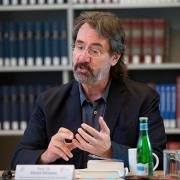
April 09/04/2021 - Michelangelo Pistoletto

Michelangelo Pistoletto was born in Biella in 1933. He began to exhibit his work in 1955 and in 1960 he had his first solo show at Galleria Galatea in Turin. An inquiry into selfportraiture characterizes his early work. In the two-year period 1961-1962 made the first Mirror Paintings, which directly include the viewer and real time in the work, and open up perspective, reversing the Renaissance perspective that had been closed by the twentiethcentury avant-gardes. These works quickly brought Pistoletto international acclaim,leading, in the sixties, to one-man shows in important galleries and museums in Europe and the United States. The Mirror Paintings are the foundation of his subsequent artistic output and theoretical thought. In 1965 and 1966 he produced a set of works entitled Minus Objects, considered fundamental to the birth of Arte Povera, an art movement of which Pistoletto was an animating force and a protagonist. In 1967 he began to work outside traditional exhibition spaces, with the first instances of that “creative collaboration” he developed over the following decades by bringing together artists from different disciplines and diverse sectors of society. In 1975-76 he presented a cycle of twelve consecutive exhibitions, Le Stanze, at the Stein Gallery in Turin. This was the first of a series of complex, year-long works called “time continents”. Others are White Year (1989) and Happy Turtle (1992). In 1978, in a show in Turin, Pistoletto defined two main directions his future artwork would take: Division and Multiplication of the Mirror and Art Takes On Religion. In the early eighties he made a series of sculptures in rigid polyurethane, translated into marble for his solo show in 1984 at Forte di Belvedere in Florence. From 1985 to 1989 he created the series of “dark” volumes called Art of Squalor. During the nineties, with Project Art and with the creation in Biella of Cittadellarte - Fondazione Pistoletto and the University of Ideas, he brought art into active relation with diverse spheres of society with the aim of inspiring and producing responsible social change. In 2003 he won the Venice Biennale’s Golden Lion for Lifelong Achievement. In 2004 the University of Turin awarded him a laurea honoris causa in Political Science. On that occasion the artist announced what has become the most recent phase of his work, Third Paradise. In 2007, in Jerusalem, he received the Wolf Foundation Prize in the Arts, “for his constantly inventive career as an artist, educator and activist whose restless intelligence has created prescient forms of art that contribute to fresh understanding of the world. In 2010 he wrote the essay The Third Paradise, published in Italian, English, French and German. In 2012 he started promoting the Rebirth-day, first worldwide day of rebirth, celebrated every year on 21st December with initiatives taking place all around the world. In 2013 the Louvre in Paris hosted his personal exhibition Michelangelo Pistoletto, année un – le paradis sur terre. In this same year he received the Praemium Imperiale for painting, in Tokyo. In May 2015 he received a degree honoris causa from the Universidad de las Artes of Havana in Cuba. In the same year he realizes a work of big dimensions, called Rebirth, situated in the park of the Palais des Nations in Geneva, headquarters of the UN. In 2017 the text written by Michelangelo Pistoletto Ominitheism and Demopraxy. Manifesto for a regeneration of society was published. Between 2018 and 2020 the activity of the Third Paradise has further intensified, in particular through the development of an international network of Embassies and Forums. In these same years he has been particularly active in various South American countries, with personal exhibitions and a series of initiatives linked to the Third Paradise.
April 14/04/2021 - Victoria Ateca-Amestoy
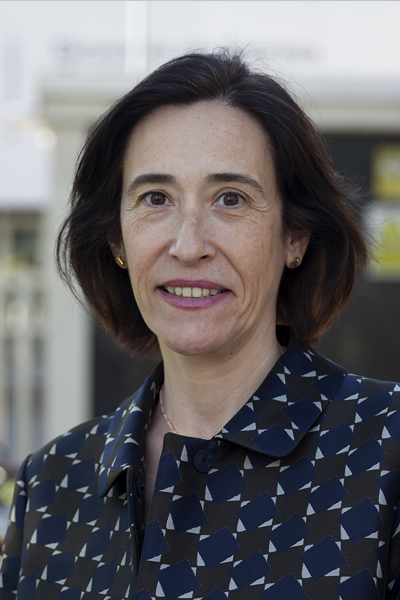
April 15/04/2021 - Tally Katz-Gerro
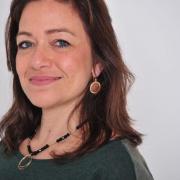
Tally Katz-Gerro joined the University of Manchester as Research Fellow in the Sustainable Consumption Institute and Reader in Sociology in September 2016. My research addresses scholarship conducted at the crossroads of consumption, culture, environment, and inequality, with a strong emphasis on cross-national and cross-time comparisons. Recently I served for two terms as member of the executive committee and treasurer of the European Sociological Association; I was vice-president of the Israel Sociological Society; I co-founded a section on environment and society within the Israeli Sociological Society and I was co-coordinator of the Israel branch of the Sustainable Consumption Research and Action Initiative (SCORAI). In the past few years I was invited as visiting professor in several universities, including the Department of Economic Sociology in Turku, where I was also appointed adjunct professor; Kyung-Hee University in Seoul; Science Po in Paris; ENSAE in Paris; University of Innsbruck and others. I was recently appointed as co-editor-in-chief of Poetics: Journal of Empirical Research on Culture, the Media, and the Arts.
April 16/04/2021 - Yudhishthir Raj Isar
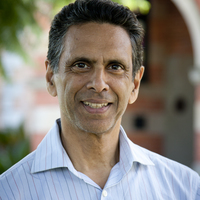
April 21/04/2021 - Marco Martiniello
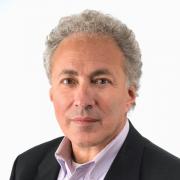
Marco Martiniello (born October 15, 1960) is an Italian-Belgian sociologist and political scientist. He teaches sociology of migration and ethnic relations at the University of Liège. He is currently research director at the Belgian National Fund for Scientific Research (F.R.S.-FNRS), and the director of the Centre for Ethnic and Migration Studies (CEDEM), as well as Vice-Dean for Research at the Faculty of Social Sciences of the University of Liège. Martiniello holds a B.A. in sociology from the University of Liège and a Ph.D. in social and political sciences from the European University Institute in Florence. He specializes in migration studies, ethnicity, multiculturalism, racism and citizenship in the European Union and in Belgium, and he is the author, editor or co-editor of numerous articles, book chapters, reports and books on these themes. His current research focuses on the integration, political participation and mobilization of immigrant minorities through the arts in super-diverse cities across the world (Belgium, Italy, South Africa, Australia and USA). Along his career, Martiniello has held numerous visiting appointments at New York University, Columbia University, Malmö University, City University of New York, University of Geneva,University of Kwazulu-Natal, University of Queensland, etc. Besides academic achievements, Martiniello was also awarded with important civic distinctions including the honorary citizenship of the city of Liège in 2015, and the knighthood of the Order of the Star of Italy in 2017.
April 22/04/2021 - Wiebke Sievers
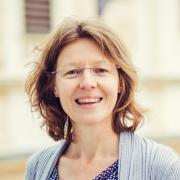
Wiebke Sievers is migration researcher at the Austrian Academy of Sciences in Vienna as well as guest-researcher and lecturer at the European University Viadrina in Frankfurt/Oder. Her research concentrates on migration and culture in Austria and in international comparison, with her main interest being in literature. However, she also works on theatre, cultural policies and the financing of culture. Her other research foci include literary translation and the internationalisation of literature. She is a member of the Executive Board of the largest research network in the field of migration studies IMISCOE and directs together with Marco Martiniello the IMISCOE Standing Committee DIVCULT (Superdiversity, Migration and Cultural Change). Recent publications "Scale Shifting: New Insights into Global Literary Circulation", Special issue of the Journal of World Literature (2020, with Peggy Levitt); "From Monolingualism to Multilingualism? The Pre- and Post-monolingual Condition in the Austrian Literary Field", in Austria in Transit: Displacement and the Nation-State, ed. by Áine McMurtry and Deborah Holmes (Austrian Studies, 26) 2019, 40-56. "Immigrant and ethnic minority writers since 1945: fourteen national contexts in Europe and beyond" (2018, with Sandra Vlasta). Diversity incorporation in the cultural policy mainstream: Exploring the main frameworks and approaches bridging cultural and migration studies, Special issue of the journal Crossings: Journal of Migration & Culture, 8, 1, 2017 (with Marco Martiniello and Ricard Zapata-Barrero) “Mainstage theatre and immigration: The long history of exclusion and recent attempts at diversification in Berlin and Vienna”, Crossings: Journal of Migration & Culture, 8, 1, 2017, 67-83.
April 28/04/2021 - Alessandra Venturini
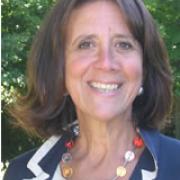
April 29/04/2021 - Andrea Ricci
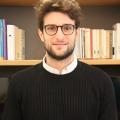
Suggested readings
Vertovec S. (2019). ‘Talking around Super-Diversity’. Ethnic and Racial Studies, 42(1): 125-39.
